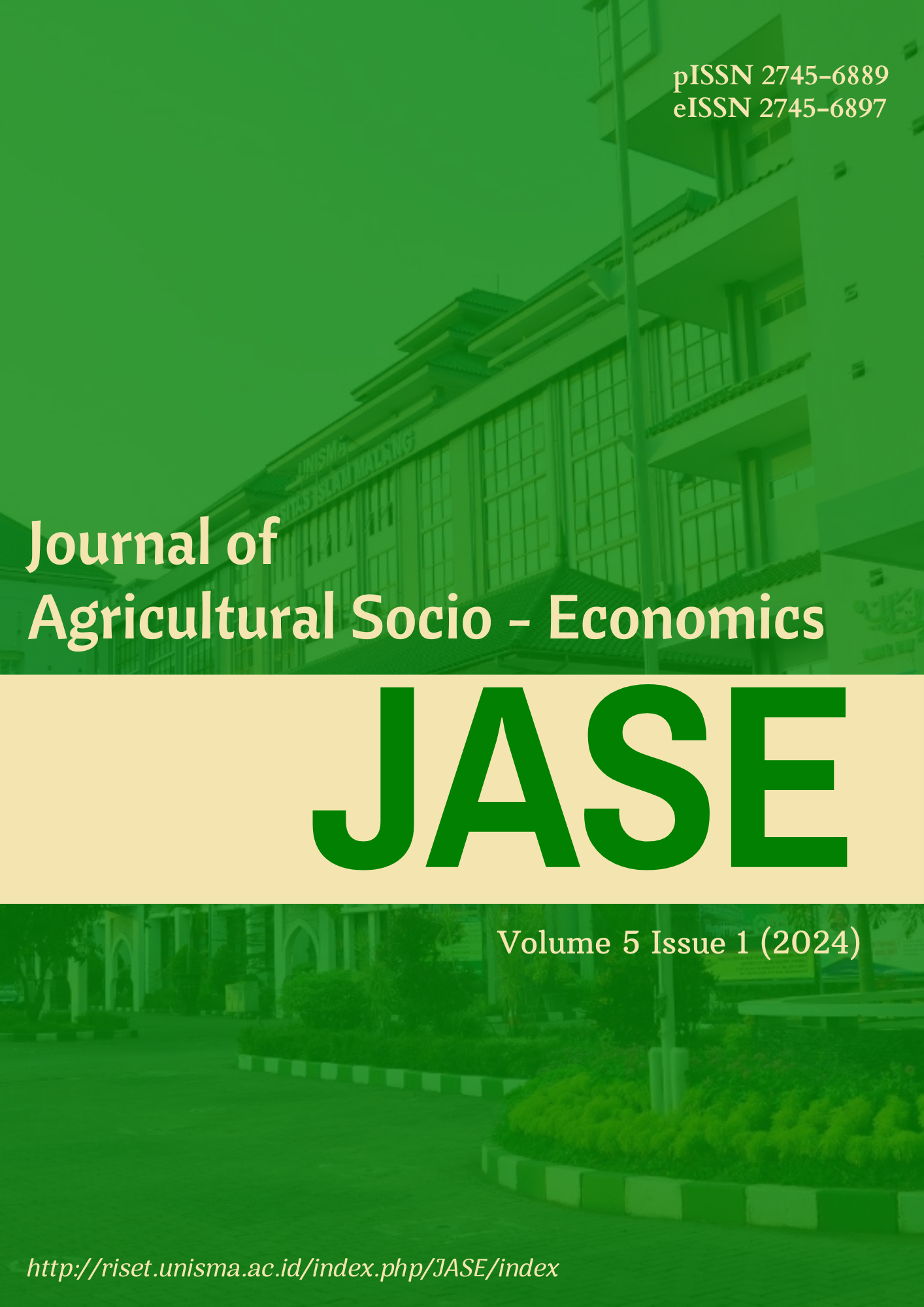HOUSEHOLD SOCIOECONOMIC FACTORS AFFECTING FAMILY FOOD CONSUMPTION: A CASE STUDY OF HOUSEHOLDS IN GUNUNG JATI VILLAGE EAST JAVA PROVINCE INDONESIA
DOI:
https://doi.org/10.33474/jase.v5i1.21493Abstract
Food adequacy is often a measure of household welfare. Household food consumption is the need of household members for food which aims to strengthen food security at the household level. The quality and quantity of food consumed by each individual will influence the individual's nutritional status. This research aims to analyze how socioeconomic factors influence family food consumption. The research was conducted in Gunung Jati Village, Jabung District, Malang Regency using probability sampling techniques in the form of random sampling. The sample was selected by accidental sampling as many as 49 mothers with toddlers. The data analysis method used is logistic regression. Socioeconomic factors that have the potential to influence mothers' decisions in fulfilling family food consumption are the mother's education (X2), household income (X3), and mother's nutritional knowledge (X4).
Downloads
Published
How to Cite
Issue
Section
License
Copyright (c) 2024 Lia Rohmatul Maula, Dwi Susilowati

This work is licensed under a Creative Commons Attribution-ShareAlike 4.0 International License.
JASE: Journal of Agricultural Socio-Economics with a registration number of ISSN xxxx-xxxx (printed) and xxxx-xxxx(online) published by the Department of Agribusiness, Faculty of Agriculture at the University of Islam Malang by applying for copyright and License.
Copyright:
- Copyright in each text is the property of the author.
- The author agrees that JASE has the right to the first license issued with a Creative Commons Attributions-ShareAlike 4.0 International License.
- The author can write the article separately through non-exclusive distribution with other versions related to the article that was first published in the JASE : Journal of Agricultural Socio-Economics.
Licence:
- Attribution: You must give appropriate credit, provide a link to the license, and indicate if changes were made. You may do so in any reasonable manner, but not in any way that suggests the licensor endorses you or your use.
- ShareAlike: If you remix, transform, or build upon the material, you must distribute your contributions under the same license as the original.
- No additional restrictions: You may not apply legal terms or technological measures that legally restrict others from doing anything the license permits.
You are accessible to:
- Share a copy and redistribute this material in any form or format.
- Change and make derivatives of this material for any purpose, including commercial interests.
- The licensor cannot revoke the above conditions as long as the authors comply with the terms of this license.
Â

This work is licensed under a Creative Commons Attribution-ShareAlike 4.0 International License.








_-_Copy.jpg)

